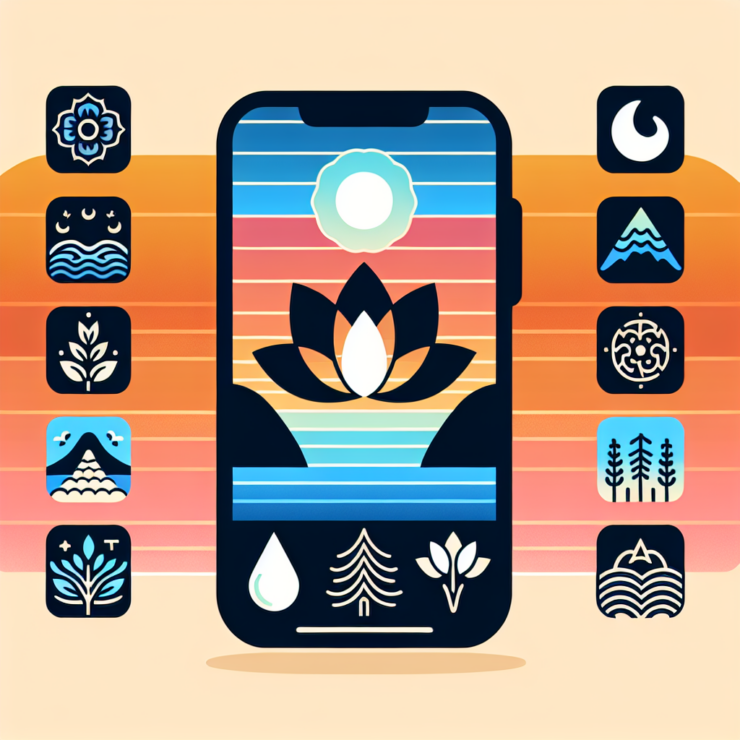Introduction to Mindfulness Meditation
Mindfulness meditation is a mental training practice that teaches individuals to slow down racing thoughts, let go of negativity, and calm both the mind and body. It involves paying attention to one’s thoughts, feelings, and sensations in the present moment, without judgment. This practice can be done anywhere, at any time, which makes it particularly beneficial for working professionals who may find themselves in need of a quick method to reduce stress.
What is Mindfulness Meditation?
Mindfulness meditation is a form of meditation that has its roots in ancient traditions but has gained widespread popularity in the modern world as a practical tool for enhancing mental well-being. It typically involves breathing practices, guided imagery, and other practices to relax the body and mind and reduce stress.
The essence of mindfulness lies in maintaining a moment-by-moment awareness of our thoughts, feelings, bodily sensations, and the surrounding environment. It also involves acceptance, meaning that we pay attention to our thoughts and feelings without believing, for instance, that there’s a “right” or “wrong” way to think or feel at a given moment.
Benefits of Mindfulness Meditation for Working Professionals
Mindfulness meditation offers a plethora of benefits that are particularly advantageous for professionals who are navigating the complexities of the work environment. Some of the key benefits include:
- Stress Reduction: Regular mindfulness practice is known for its effectiveness in reducing stress, which is a common challenge faced by many professionals.
- Enhanced Concentration: It improves focus and concentration, helping individuals to stay on task and reduce the impact of distractions.
- Emotional Regulation: Mindfulness aids in managing emotions, leading to improved decision-making and fewer emotional reactions to workplace challenges.
- Increased Resilience: It builds resilience by promoting a positive response to difficult situations, enabling professionals to handle workplace pressures more effectively.
- Improved Relationships: By fostering a greater awareness of oneself and others, mindfulness can lead to better communication and healthier workplace relationships.
The benefits of mindfulness meditation for working professionals can be summarized in the following table:
| Benefit | Description |
|---|---|
| Stress Reduction | Lowers overall stress levels, contributing to better health and job satisfaction. |
| Enhanced Concentration | Leads to improved focus and attention to detail in work tasks. |
| Emotional Regulation | Helps in managing and understanding emotions, enhancing professional interactions. |
| Increased Resilience | Builds a stronger response to adversity and workplace challenges. |
| Improved Relationships | Fosters effective communication and collaboration among colleagues. |
By integrating mindfulness meditation into daily life, working professionals can cultivate a sense of calm and clarity that benefits both their personal and professional lives. Mindfulness meditation apps have emerged as a convenient and accessible way to practice this form of meditation, offering guided sessions that can be used anytime and anywhere to achieve a state of zen.
The Rise of Mindfulness Meditation Apps
As the pace of life accelerates, many individuals seek strategies to maintain their mental wellness. Mindfulness meditation apps have emerged as a popular tool to help people cultivate a sense of calm and clarity in their daily lives.
How Mindfulness Apps Can Enhance Your Practice
Mindfulness apps offer a convenient way to practice meditation and integrate mindfulness into one’s busy schedule. By providing guidance through various techniques and sessions, these apps can help individuals stay consistent with their practice. They serve as a personal mindfulness coach, accessible anytime and anywhere, reducing common barriers to maintaining a regular meditation routine.
The apps often include features like:
- Guided meditations for different situations and moods
- Progress tracking to encourage regular use
- Reminders for scheduled meditation sessions
These digital tools can make the practice more engaging and less daunting, especially for those new to mindfulness. With structured programs and personalized settings, users can gradually build their skills and apply mindfulness to everyday situations, potentially enhancing their overall quality of life.
Features to Look for in Mindfulness Meditation Apps
When evaluating mindfulness meditation apps, certain features stand out as particularly beneficial for those looking to enrich their practice. These features can vary in importance based on personal preferences, but here are some key aspects to consider:
| Feature | Description |
|---|---|
| Guided Sessions | Step-by-step instructions for meditations of various lengths and purposes. |
| Customizable Programs | Ability to tailor sessions based on individual goals and experience levels. |
| Progress Tracking | Tools to monitor consistency, duration, and improvements in one’s practice. |
| Variety of Content | A wide range of meditation types to explore, from breathing exercises to body scans. |
| User-Friendly Interface | An intuitive and easy-to-navigate app layout that enhances the user experience. |
| Offline Accessibility | Access to content without needing an internet connection, ensuring practice can occur anywhere. |
| Community Features | Options to connect with other users or meditation groups for support and motivation. |
By identifying which features align with their needs, individuals can select an app that will best support their journey towards mindfulness. This, in turn, can lead to improved focus, reduced stress levels, and a more balanced approach to work and life.
Evaluating Mindfulness Meditation Apps
In the search for the ideal mindfulness meditation apps, certain criteria must be met to ensure they meet the needs of working professionals seeking to enhance their mental health and work-life balance. These criteria include the user interface and usability, content quality and variety, and customization and personalization options.
User Interface and Usability
The user interface of mindfulness meditation apps is a critical aspect as it directly impacts the user’s experience. A well-designed interface should be clean, intuitive, and easy to navigate, allowing users to start their meditation practices without unnecessary complications.
Usability involves the overall user experience, including the ease of sign-up, setting preferences, and accessing different features. Apps should provide seamless navigation with clear instructions and support, ensuring that even those new to mindfulness can use the app effectively.
A table comparing different aspects of usability can help users make an informed decision:
| Usability Factor | Importance |
|---|---|
| Sign-up Process | High |
| Navigation Ease | High |
| Instruction Clarity | High |
| Support Availability | Medium |
Content Quality and Variety
Content is the heart of mindfulness meditation apps. High-quality content that is engaging, scientifically backed, and delivered by qualified instructors plays a vital role in the effectiveness of the app. The app should offer a wide range of content to cater to various preferences and goals, from guided meditations and breathing exercises to mindfulness talks and stress-reduction techniques.
Content variety is also essential, as users may prefer different meditation lengths, styles, and focuses. Diversity in content ensures that the app can cater to a user’s needs, whether they are looking for a quick stress relief session during a work break or a more extended meditation practice at home.
| Content Aspect | Importance |
|---|---|
| Instructor Qualifications | High |
| Scientific Backing | High |
| Meditation Variety | High |
| Session Length Options | Medium |
Customization and Personalization
Customization and personalization features allow users to tailor the app to their specific needs and preferences. The ability to set personal goals, track progress, and receive recommendations based on past usage enhances the user’s journey towards mindfulness.
Personalization can range from adjusting session lengths to selecting focus areas, such as reducing anxiety or improving sleep. Apps that learn from user behavior and adapt accordingly can provide a more enriching experience.
A list of potential customization options might include:
- Personal goals setting
- Progress tracking
- Tailored recommendations
- Adjustable session lengths
- Focus area selection
By evaluating mindfulness meditation apps based on these critical aspects, individuals can select an app that not only fits their lifestyle but also supports their mental health and well-being goals. The right app can be a valuable tool in cultivating mindfulness, managing stress, and achieving a harmonious work-life balance.
Incorporating Mindfulness Apps into Your Routine
Incorporating mindfulness practices into daily life can be challenging for working professionals. Nonetheless, mindfulness meditation applications can be a valuable resource for those looking to enhance their mental wellbeing amidst a hectic schedule.
Finding Time for Mindfulness in a Busy Schedule
The key to integrating mindfulness into a busy routine is identifying pockets of time that can be dedicated to meditation. Whether it’s during the morning routine, on a lunch break, or before bed, mindfulness can be practiced in short intervals that fit into one’s schedule.
| Time of Day | Potential Mindfulness Time |
|---|---|
| Early Morning | 5-10 minutes upon waking |
| Lunch Break | 10-15 minutes of seated meditation |
| Commute | 5-10 minutes of mindful breathing (if not driving) |
| Evening | 10 minutes before bed |
By setting aside these small timeframes consistently, individuals can cultivate a habit of mindfulness that benefits their overall well-being.
Creating a Conducive Environment for Meditation
Creating a space that encourages relaxation and concentration is essential for effective meditation. This environment does not need to be elaborate; a quiet corner with comfortable seating can serve the purpose well. Encouraging the use of noise-cancelling headphones or soft background music can also help in maintaining focus during meditation sessions.
Tracking Progress and Staying Motivated
Maintaining motivation is crucial for a lasting mindfulness practice. Many meditation apps offer progress tracking features that allow users to monitor their journey and set goals. This can include the number of sessions completed, total time spent meditating, or consistency streaks.
| Feature | Benefit |
|---|---|
| Session Tracking | Visualizes the frequency of practice |
| Time Tracking | Shows cumulative time spent meditating |
| Streaks | Encourages daily practice |
Through these features, individuals can gain a sense of accomplishment and are often inspired to continue their practice. Additionally, setting personal goals and celebrating milestones can further enhance motivation and commitment to mindfulness.
Balancing Work-Life and Mental Health
The intersection of work, life, and mental health has become a focal point for many working professionals. Mindfulness meditation apps have emerged as a valuable resource for those seeking equilibrium in these aspects of their lives.
Mindfulness for Stress Management at Work
Workplace stress is a common challenge, with many individuals feeling overwhelmed by the demands of their careers. Mindfulness meditation offers a way to navigate this stress, providing techniques to stay centered and composed amidst a hectic work environment. By practicing mindfulness, professionals can cultivate a heightened awareness of their thoughts and emotions, allowing them to respond to work-related stressors more effectively.
The practice of mindfulness can be integrated into the workday through short, guided sessions that focus on breathing and awareness. These moments of pause contribute to a more calm and focused mindset, which can enhance productivity and job satisfaction.
Mindfulness Apps as a Tool for Work-Life Balance
Mindfulness meditation apps serve as a bridge, enabling professionals to incorporate mindfulness into their daily routines with ease. These apps offer guided meditations, breathing exercises, and relaxation techniques that can be accessed at any time, providing a practical solution for those struggling to maintain work-life balance.
The accessibility of mindfulness apps means that individuals can engage in mindfulness practice during their commute, on a lunch break, or in the moments between meetings. The convenience of app-based meditation helps users to find equilibrium, ensuring that they can dedicate time to both their professional responsibilities and personal well-being.
Long-Term Benefits of Regular Mindfulness Practice
Engaging in regular mindfulness practice yields significant long-term benefits for mental health and overall well-being. A consistent routine helps to build resilience against stress, enhances cognitive function, and fosters a greater sense of life satisfaction.
The following table highlights the potential long-term benefits of mindfulness practice:
| Benefit | Description |
|---|---|
| Reduced Stress | Regular mindfulness meditation can lower the levels of stress hormones in the body. |
| Improved Focus | Mindfulness enhances concentration and the ability to remain task-focused. |
| Emotional Regulation | Regular practice aids in managing emotions, leading to better mood stability. |
| Increased Resilience | Mindfulness builds resilience, making it easier to recover from setbacks. |
| Better Sleep | Mindfulness can contribute to improved sleep patterns and quality. |
Adopting mindfulness meditation apps into one’s daily routine can facilitate these benefits, contributing to a more balanced and fulfilling professional and personal life. The cumulative effects of mindfulness reinforce its value as a sustainable practice for working professionals.











